World
Out in the World: LGBTQ news from Europe and Asia
More than 180,000 people attended the annual Taiwan Pride parade on Oct. 28

Taiwan
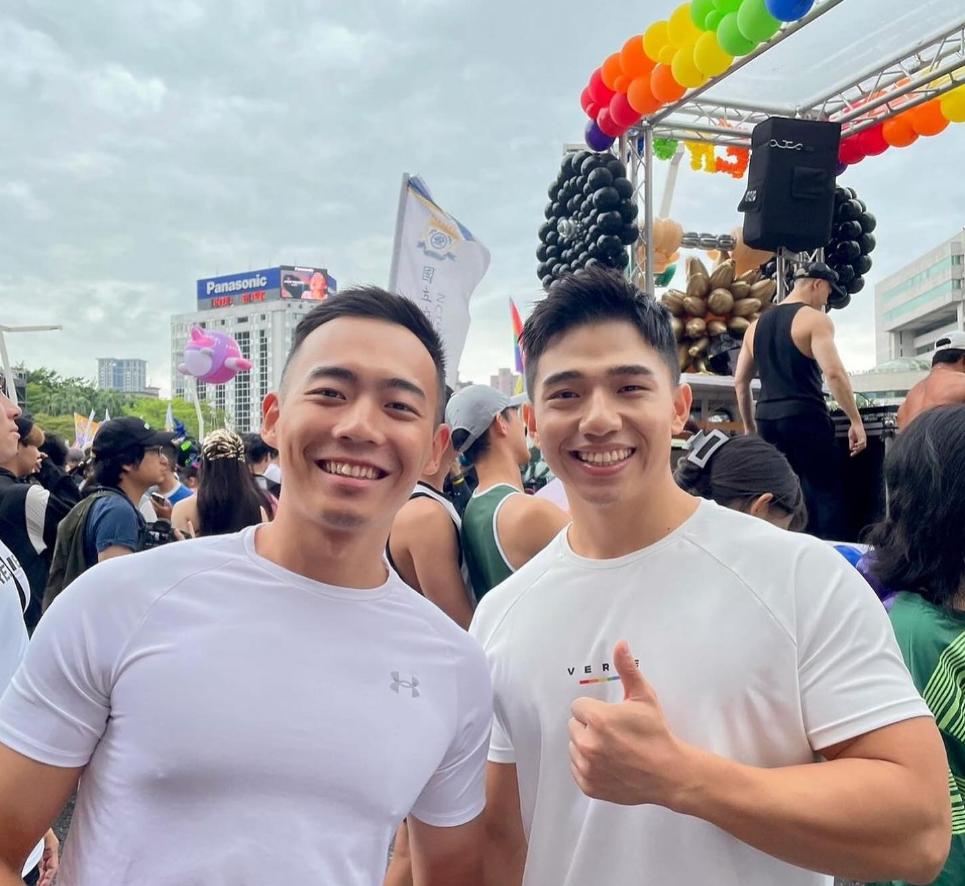
The 21st annual Pride parade through the streets of the capital city this year marked a major milestone as over 180,000 people marched on Oct. 28 for Asia’s largest Pride parade.
Mixed in with drag queens and go-go dancers, Vice President Lai Ching-te became the highest-ranking official to join the throngs of people celebrating the occasion on the streets of downtown Taipei.
The theme of this year’s pride parade was “Stand with Diversity,” came months after adoption rights were extended to same-sex couples in the country and the recognition of Taiwanese same-sex spouses who were married in foreign countries.
Lai, the country’s vice president and a leading presidential candidate, who is running as the progressive party’s candidate in the Jan. 13, 2024, elections noted that Taiwan is at the forefront of LGBTQ rights in Asia in his remarks to reporters and Pride attendees.
“Love knows no boundaries; LGBTQ+ rights are human rights. Today, we celebrate love, courage and justice at the 21st Taiwan Pride parade. As the first Asian country to legalize same-sex marriage, we stand with diversity and remain committed to building a more inclusive society for all,” he told the crowd adding: “I want to explain to all my good friends that marriage equality is not the end but the starting point of Taiwan’s equal rights culture. In the future, I will stand with everyone and move forward together on the road of diversity. I will stand with all of you, firmly supporting you in being true to yourselves, [and] making Taiwan even more beautiful.”
China
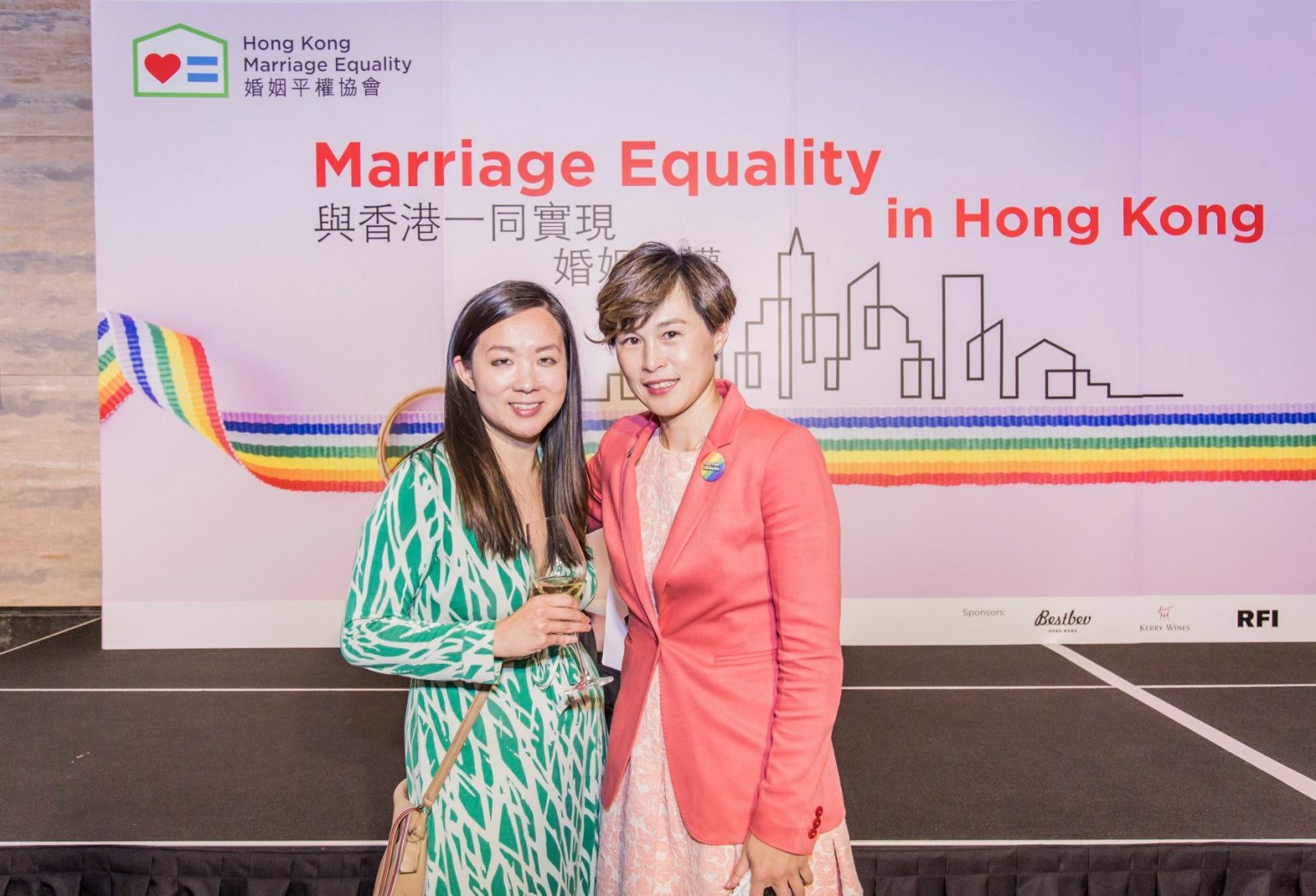
A ruling by Hong Kong’s Court of Appeal on Oct. 17 is being called a partial victory for LGBTQ rights in Hong Kong. The High Court dismissed a government legal attempt to deny same-sex married couples the right to rent and own public housing saying that it was “discriminatory in nature” and a complete denial of their rights.
Court of Appeal Justices Jeremy Poon, Aarif Barma and Thomas Au said in their ruling that the authority’s treatment of gay married couples was “discriminatory in nature” and they should be afforded equal treatment.
“The differential treatment in the present cases is a more severe form of indirect discrimination than most cases because the criterion is one which same-sex couples can never meet,” the judges wrote.
LGBTQ rights group Hong Kong Marriage Equality released a statement saying that the decision had made clear “that discrimination and unequal treatment on the ground of sexual orientation has no place in public policy decisions.”
In September, same-sex couples won a partial victory in the Court of Final Appeal, Hong Kong’s highest court, when it ruled that the government must formulate an alternative framework for same-sex couples seeking legal recognition as the court refused to recognize same-sex marriages which are not currently allowed.
Australia
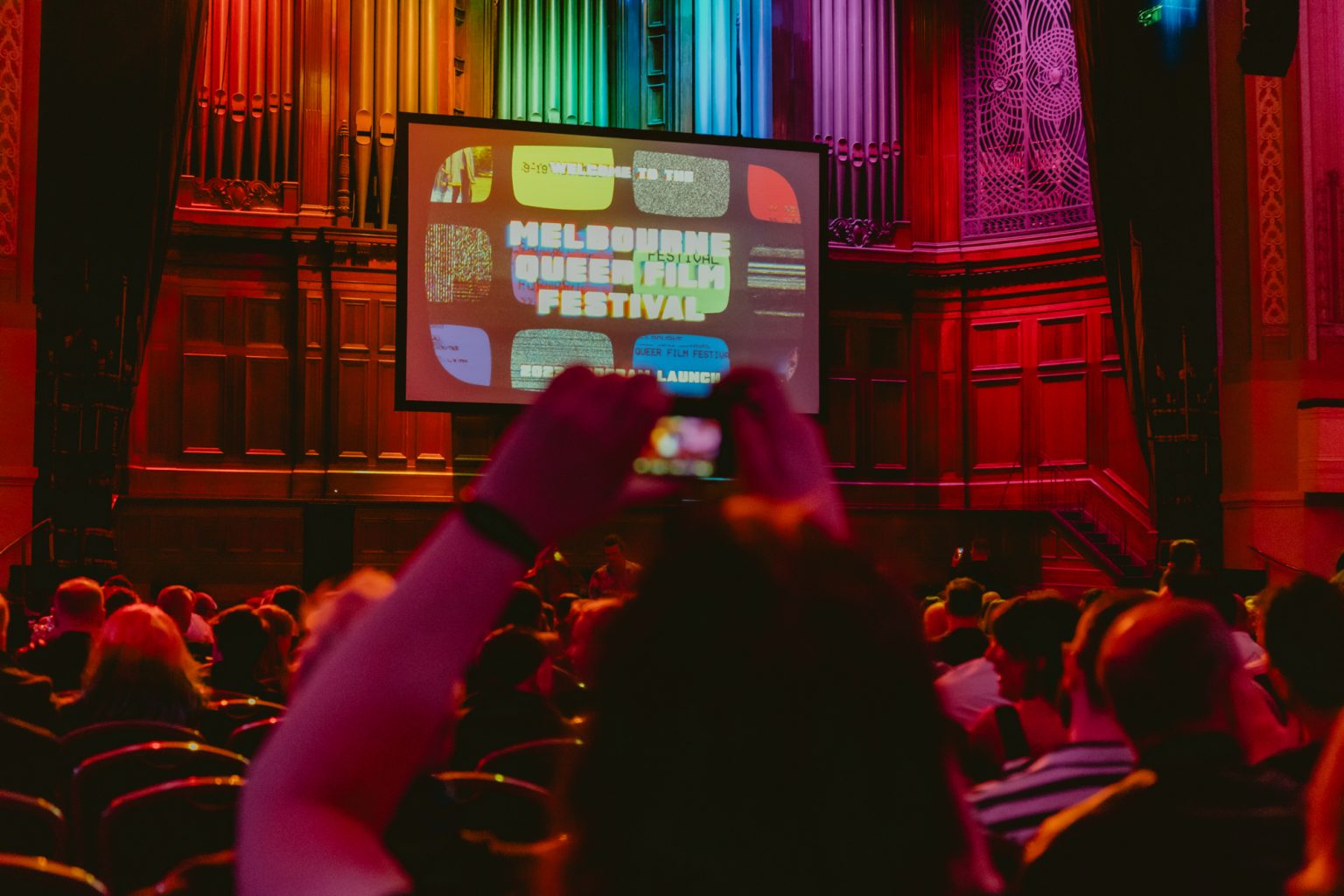
The 33rd annual Melbourne Queer film festival, the largest and oldest queer film festival in the country will take place from Nov. 9-19 with the festival’s theme of “rewind to fast forward.”
David Martin Harris, the festival’s CEO, speaking with Australia’s largest LGBTQ media outlet, the Star Observer, noted, “This year’s fabulous program will bring the community together to celebrate queer film, our diverse stories, and voices,” said Harris. “There are so many stories from across the globe that share important messages, whether that be heart-warming, uplifting, hilarious, or inspirational — the program will connect audiences for a celebration like no other.”
According to the Star Observer, staying true to its theme Rewind to Fast Forward, this year the festival celebrates queer classics including “La Cage Aux Folles,” “Glen or Glenda,” “Head On” and “Offside,” alongside a vibrant tapestry of fresh stories from around the world.
In an interview with the Guardian, Cerise Howard, the curator of the film festival, regarding the overarching theme said “We [LGBTQ people] have always been here so it’s vital we engage with our history.”
The language in some of the festival’s historic films “may be considered problematic today,” Howard told the Guardian, pointing to terms like “sex change operation” rather than gender affirmation surgery in 1953 drama “Glen or Glenda.” “But it’s important we are able to collectively not just enjoy but be educated by films of yesteryear.”
“We need to see our community in all its diversity, but we don’t need to see us all painted as saints — because we’re not,” she added. “We are complex, nuanced human beings capable of good and bad.
“We’d be doing audiences a disservice if we tried to paint a utopian vision of our lives — because no one could relate to that anyway. So the stories shouldn’t aim to be universal but particular — because in that particularity I think people can see themselves and engage more.”

Nationally prominent Australian Broadcasting Corporation’s journalist Patricia Karvelas recently has been the target of right wing homophobic and racist trolls for talking openly about her life as a now out proud lesbian and her wife and family.
In an interview with the network’s ABC Queer program, Karvelas said that she had to keep her sexuality a secret at the start of her career, especially from anti-LGBTQ politicians. Karvelas said that she was “paranoid” about being outed and did not want to lose out on opportunities because of her sexuality.
After she shared her personal story with the network’s ABC Queer, British right-wing tabloid publication Daily Mail reported on her interview, which then triggered online trolls that viciously targeted the award-winning journalist with vile homophobic abuse.
In an X, formerly Twitter, post, the veteran journalist responded with “Daily Mail writes story. Trolls target me for hours with vile stuff. My family is really proud of me thanks.”
ABC’s Director of News Justin Stevens released a statement on behalf the network defending her and taking aiming at the British tabloid publication without naming it noting “publicizing it and publishing personal photos to illustrate it is irresponsible and unjustified.”
“ABC journalist and presenter Patricia Karvelas is a fine, principled journalist and a courageous and generous human being,” the statement read adding:
“We’re proud she works for the ABC and grateful for her hard work and huge contribution to the national public broadcaster and audiences.
It is disturbing, saddening and angering that Patricia should find herself the target of online trolling and abuse, much of it sexualized, homophobic and racist, just for speaking publicly about her life.
For a major national media outlet to compound that abuse by publicizing it and publishing personal photos to illustrate it is irresponsible and unjustified.
As the eSafety Commissioner says: journalists are more likely to experience online abuse who are female, from diverse racial or social backgrounds, are younger, have a disability, or identify as LGBTIQ+. It can have devastating professional and personal impacts. It can lead to the silencing of journalists, with some self-censoring, retreating from covering certain topics or leaving the industry.
Media outlets should be combatting dangerous online abuse and gender-based and sexual bullying, and standing in solidarity with peers experiencing it, not disingenuously serving to amplify it.”
United Kingdom
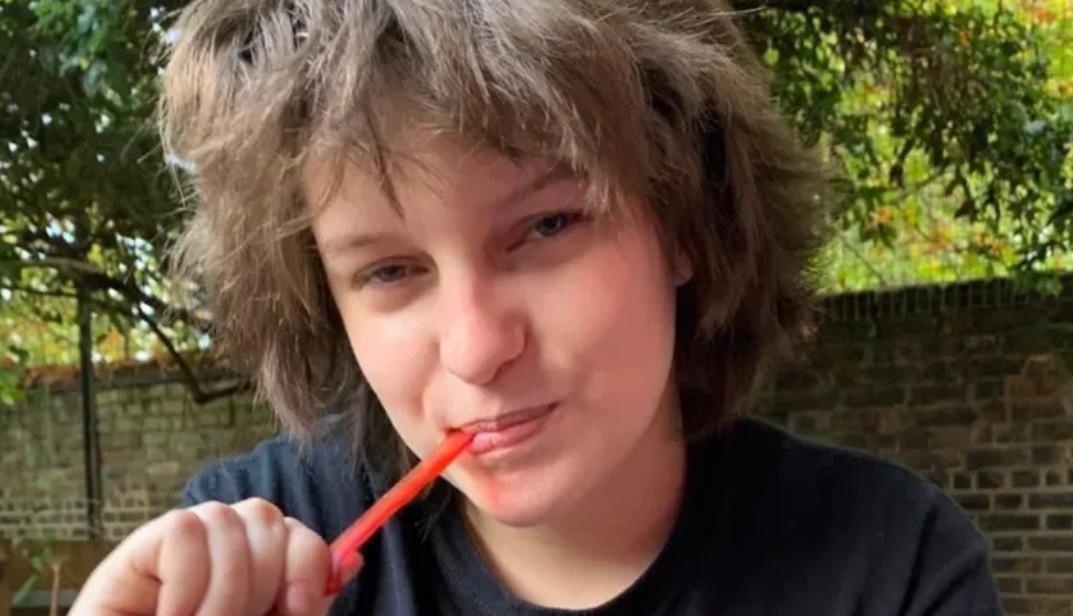
The death of a 14-year-old trans boy by suicide on Oct. 12 created a need by his mother Rita Williams, to set up a GoFundMe fundraiser to cover her son’s funeral expenses. The family indicated that after the costs of a memorial headstone, grave plot, flowers and other associated funeral expenses were raised any remainder was to be donated to charities and the hospital that treated him.
On Nov. 3, Williams thanked contributors for raising £10,493 ($13001.19) raised of the £6,000 ($7434.21) goal. She had written that “after Corei has been laid to rest and the memorial paid for, we will give everything remaining to charity: 50 percent to Great Ormond Street Hospital as they looked after Corei and us so well in his last days, and 50 percent split equally three ways between the trans youth charities Think2Speak and Mermaids, and the youth mental health charity Young Minds, in the hope that young lives can be saved.”
In an X, formerly Twitter, post, Williams also shared a picture of a letter she received regarding her son’s organs. In the letter, it details that one of his kidneys and pancreas was provided to a lady in her 40s who had been on the organ donation waiting list for seven years, while the other kidney was given to a young girl who had been waiting for two years.
“As you may be aware, kidney disease is a very debilitating condition. It requires sufferers to have a special diet and for some dialysis in hospital, sometimes up to four times a week,” the letter reads.
“Corei has given this lady and young girl the chance of a life free from dialysis they were dependent on.”
The letter goes on to state that a teenage girl also received a lifesaving liver transplant because of the young man and now has the chance of a “healthier and brighter future.”
Finally, the “very precious and especially rare gift of a double lung transplant” was given to a man in his fifties.
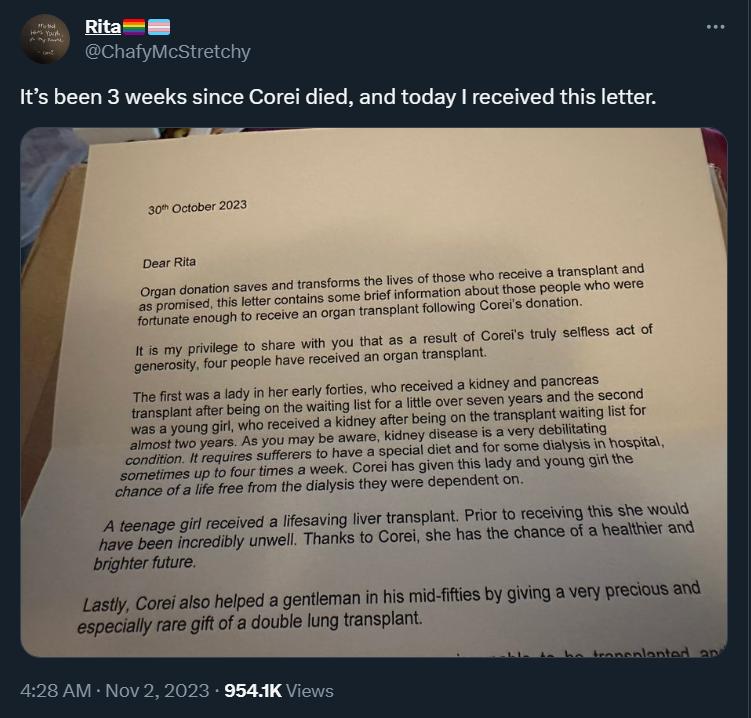
In the GoFundMe post, Williams wrote of her son:
“Corei was a typical teenager who loved giraffes, doctor who and the color yellow. He loved all sorts of animals and adored his friends. He was open and accepting of everybody. He had wicked sense of humor and was full of sass, and he was also stubborn and a pain in the arse! He was so passionate about everything, whether that be bugs, sewing or his mates.
He was autistic and struggled with his mental health. Unfortunately he was also subjected to transphobic abuse. […] I’d like to share some words that he wrote in his last letter. Please take them to heart and act on them in his name.
Thank you all. You changed my life for the better, but it wasn’t enough. Everybody who was there however, is the reason I was able to last this long. I beg of you all, don’t miss me. I will hopefully be seen as a boy in my next life, so I’m happy, do not miss me.
You are all precious humans who deserve to be loved, cherished and have all your dreams come true. To anybody who misgendered/deadnamed me; I forgive you, I only hope this teaches you to think more carefully about your actions.
Protect trans youth, in my name. Take this as an opportunity; be thankful for your family and friends because they are still here, though I may not be.
I am a person filled with grudges and anger but I choose to let them all go. I will be happy as a boy with god so no need to worry about me. Thanks again to those people. – Corei”
Hungary
In a statement posted to his personal social media accounts on Monday, L Simon László, the director general of the Hungarian National Museum, announced that he was fired by Hungarian Cultural Minister János Csák for allowing the presentation of five photographs that portray elderly queer Filipinos caring for each other in a group home they’ve shared for decades at the prestigious World Press Photo exhibition.
The cultural minister said that public display of the photographs violated 2021 law that restricts minors under age 18’s access to content that depicts LGBTQ people, culture or history.
In his statement László wrote: “Minister János Csák informed me this morning that he terminated me from the position of director general of the Hungarian National Museum because in his opinion I sabotaged the Child Protection Act. I accept the decision, but I cannot accept it. The museum deliberately did not violate any legislation by presenting the pictures of the World Press Photo exhibition.
The ministry itself acknowledged this in its previous letter: ‘In my opinion, no circumstance suggesting intentional violation of the law on the part of the Hungarian National Museum … ‘ Contrary to what was stated in the ministry’s announcement, we followed the [Csák] instruction without delay and without delay, we introduced the under 18 years restriction and immediately notified the sustainer.
As a father and grandparent of four children, I strongly refuse that our children should be protected from me or the institution I manage.”
Reuters reported the museum stopped selling tickets for the photo exhibition for youngsters after the far-right Our Homeland party had initiated a government inquiry, the party said.
“Based on the initiative of Mi Hazank (Our Homeland), youngsters under 18 cannot visit the exhibition at the National Museum as it violates the child protection law,” the far-right party told state news agency MTI. The new rule was posted on the museum’s website.

The Mexican Senate on Thursday approved a bill that would ban so-called conversion therapy in the country.
Yaaj México, a Mexican LGBTQ rights group, on X noted the measure passed by a 77-4 vote margin with 15 abstentions. The Chamber of Deputies, the lower house of Mexico’s congress, approved the bill last month that, among other things, would subject conversion therapy practitioners to between two and six years in prison and fines.
The Senate on its X account described conversion therapy as “practices that have incentivized the violation of human rights of the LGBTTTIQ+ community.”
“The Senate moved (to) sanction therapies that impede or annul a person’s orientation or gender identity,” it said. “There are aggravating factors when the practices are done to minors, older adults and people with disabilities.”
Mexico City and the states of Oaxaca, Quintana Roo, Jalisco and Sonora are among the Mexican jurisdictions that have banned the discredited practice.
The Senate in 2022 passed a conversion therapy ban bill, but the House of Deputies did not approve it. It is not immediately clear whether President Andrés Manuel López Obrador supports the ban.
Canada, Brazil, Belgium, Germany, France, and New Zealand are among the countries that ban conversion therapy. Virginia, California, and D.C. are among the U.S. jurisdictions that prohibit the practice for minors.
South America
Argentina government dismisses transgender public sector employees
Country’s Trans Labor Quota Law enacted in 2021

Protests have broken out across Argentina in recent weeks after the dismissal of transgender people from their government jobs.
President Javier Milei’s action is in stark contract with the progress seen in 2023, where the government’s hiring of trans people increased by 900 percent within the framework of the Trans Labor Quota Law that had been in place since 2021.
Among those affected is Sofia Diaz, a “survivor” who shared her testimony with the Washington Blade hours after she traveled from Chaco Province to Buenos Aires to protest her dismissal.
Presentes, an LGBTQ news agency, reported the government dismissed more than 85 trans employees in less than two weeks.
Diaz, 49, holds a degree in combined arts. She joined the National Social Security Administration (ANSES) in 2022 under the Trans Labor Inclusion Law. The layoffs began in January and left many people feeling uncertain and anguished. It was her turn a few days ago.
Diaz in an interview recounted how the situation became progressively more complicated, with difficulties in accessing information about her employment status and the eventual confirmation of dismissals through WhatsApp messages. This government action, according to Diaz, violates the law.
“We were on a Friday, I think on March 24, in the office and we have a WhatsApp group of other colleagues from all over Argentina who entered through the trans labor quota and they tell us if we can get our pay stubs on the intranet,” Diaz recalled. “So, I tried to enter, I could not, I talked to two other colleagues and they told me no, they could not, and so we went to another person. He couldn’t either.”
“Some people told us that it could be a system error. Well, we were never calm, let’s say not how this issue of installing fear and the perversion with which they do it ends,” she added. “This sadism of … inflicting pain and speculating with your misfortune and so on … is something that characterizes Javier Milei’s government.”
Diaz recalled a list of those dismissed from the agency began to circulate from the union in the afternoon. A colleague passed it on to her, “and well, unfortunately I was also on that list.”
“At that moment the whole weekend went by with anguish, crying, and talking with other colleagues from other places, not only trans, but everyone, everyone and everyone,” she said. “On Monday when we went to try to enter, we could not enter with the biometric, which is the thumb we had to use every morning to enter.”
Despite the difficult moment through which she is going, the trans activist stressed to the Blade that she will continue protesting and will even sue the government because her dismissal is illegal and “violates the constitution itself.”
The LGBTQ community and its allies have mobilized and organized demonstrations, highlighting the importance of defending the rights won and fighting against discrimination and exclusion. Diaz emphasized the fight is not only for the people affected today, but also for future generations, saying the historical memory of the struggles for inclusion and social justice must be kept alive.
“The Argentine government thus faces a key challenge in human and labor rights, where public pressure and social mobilization can play a determining role in protecting the rights of LGBTQ+ people,” Diaz said.
Africa
For queer Nigerians, being on gay dating apps is still a risk
Homophobes target users for violence

Gay hookup apps like Grindr, and dating apps like Tinder and Bumble have managed to proliferate queer communities in countries like Nigeria.
Those who seek one night stands find what they want while those looking for love equally find what they seek. These platforms have managed to position themselves as safe spaces for queer people in anti-gay Nigeria. In recent times, however, it is proving to be unsafe, as homophobic people are quickly learning about the apps, and opening accounts that either seek to outrightly threaten queer people, or pretend to be queer, have long chats with gay people, invite them over, and inflict violence on them.
Take the case of Biodun, a queer Nigerian man who joined Grindr to meet up with guys like him.
After Biodun had built a connection and agreed to meet with someone whose display name was “Mamba,” they decided to meet up only for him to be met with violence. Apparently, Mamba ran a catfish account.
“I’ll never forget that day,” Biodun, who asked the Washington Blade not to use his last name because of safety concerns, said. “I still think about it, and sometimes blame myself for being very careless, even though Grindr was supposed to be our safe space.”
Biodun’s experience isn’t peculiar to him.
In Nigeria, draconian laws that criminalize same-sex relationships exist, making queer people turn to the digital realm to explore their identities and seek connections beyond the confines of societal oppression that comes with the physical environment. Gay dating apps such as Grindr, therefore, have emerged as virtual sanctuaries, offering spaces for queer Nigerians to forge friendships, find solidarity, and pursue romantic or sexual relationships. Spaces like this, however, have morphed into a landscape fraught with danger, as homophobic people have weaponized these platforms to perpetuate hate and violence.
“Sometimes, I often wonder how they learned about these platforms,” Daniel, which is not his real name, told the Blade. “You would think that it is just us in the platforms, until you find out that the accounts are rooted in homophobia.”
One time, someone’s bio read, “I’m only here to deal with the gay people. I know all of you, and I will find and kill you. We no want una for here (translates to we do not want you here, in English.)” It was a stark reminder that these spaces are no longer LGBTQ-friendly for Nigerians. In 2014, there was the passage of the Same-Sex Marriage Prohibition Act by former President Goodluck Jonathan, which not only criminalized same-sex unions, but also imposed severe penalties on anyone involved in LGBTQ advocacy or support.
This law catalyzed a surge in discrimination and violence against queer Nigerians; emboldening regular civilians, religious extremists, and even law enforcement agencies to target individuals perceived as deviating from traditional gender and sexual norms. Again, amid this hostile environment, gay dating apps emerged as lifelines for many queer Nigerians, offering avenues for discreet communication, community building, and the pursuit of intimate relationships.
The very anonymity and freedom these apps provided, however, became double-edged swords.
The advent of screenshot and screen-recording capabilities on these apps, for example, reduced the risks of exposure, strengthening the safety and privacy of users. However, this also comes with its own lapses, as queer people using Grindr have often relied on screenshots and screen recordings to confirm the identities of potentials with their friends, before accepting to meet.
“Before the removal of the screenshot option, I usually shared photos of others with my trusted friends,” Biodun shared. “But since that was taken off, there was no way for me to do that.”
Although, according to Grindr’s terms and conditions, the removal came with privacy concerns, as it was to facilitate a safe dating experience.
This erosion of digital safe spaces is depriving queer Nigerians of vital avenues for self-expression and affirmation,and is exacerbating the psychological toll of living in a society that continues to systematically demonize their identities. Moreover, the normalization of homophobic rhetoric and violence in both physical and digital realms has perpetuated a cycle of fear and oppression, and is reinforcing this notion that LGBTQ individuals are inherently unworthy of dignity and respect. Despite these challenges, though, the resilience of queer Nigerians continue to persist, as they defy societal norms and assert their right to love and be loved.
-

 State Department4 days ago
State Department4 days agoState Department releases annual human rights report
-

 South America2 days ago
South America2 days agoArgentina government dismisses transgender public sector employees
-

 District of Columbia2 days ago
District of Columbia2 days agoCatching up with the asexuals and aromantics of D.C.
-

 Politics4 days ago
Politics4 days agoSmithsonian staff concerned about future of LGBTQ programming amid GOP scrutiny












